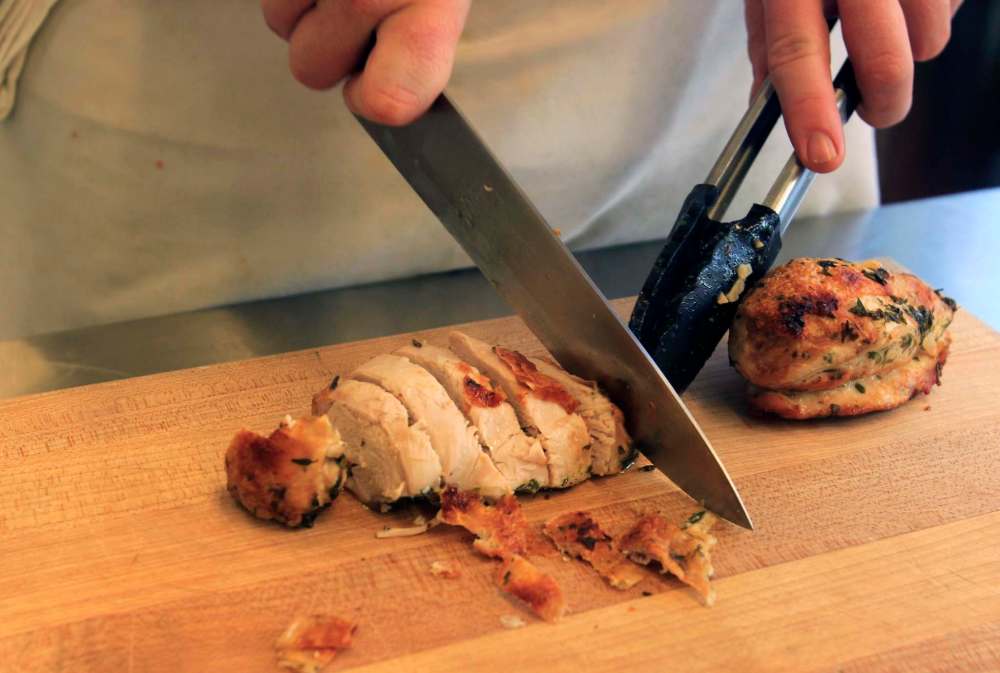The long arm of the food inspector
City, province shutter 27 restaurants after health inspections
Advertisement
Read this article for free:
or
Already have an account? Log in here »
To continue reading, please subscribe:
Monthly Digital Subscription
$0 for the first 4 weeks*
- Enjoy unlimited reading on winnipegfreepress.com
- Read the E-Edition, our digital replica newspaper
- Access News Break, our award-winning app
- Play interactive puzzles
*No charge for 4 weeks then price increases to the regular rate of $19.00 plus GST every four weeks. Offer available to new and qualified returning subscribers only. Cancel any time.
Monthly Digital Subscription
$4.75/week*
- Enjoy unlimited reading on winnipegfreepress.com
- Read the E-Edition, our digital replica newspaper
- Access News Break, our award-winning app
- Play interactive puzzles
*Billed as $19 plus GST every four weeks. Cancel any time.
To continue reading, please subscribe:
Add Free Press access to your Brandon Sun subscription for only an additional
$1 for the first 4 weeks*
*Your next subscription payment will increase by $1.00 and you will be charged $16.99 plus GST for four weeks. After four weeks, your payment will increase to $23.99 plus GST every four weeks.
Read unlimited articles for free today:
or
Already have an account? Log in here »
Hey there, time traveller!
This article was published 27/07/2016 (3432 days ago), so information in it may no longer be current.
Map shows 2016 closures
The Fresh Carrot may be fresh, but its water was cold when a provincial health inspector walked through the door in April.
The Osborne Village location was one of 27 food establishments in the city and province that have been closed so far this year for health violations caught by provincial health inspectors.
The Fresh Carrot was closed April 20 because it had no hot water and utensils weren’t sanitized properly.

It reopened two days later.
Ian McKie, the Fresh Carrot’s general manager, said their hot-water heater was working, but a switch had flipped, shutting it down.
“We just had to go flip a switch,” McKie said.
“It was working five minutes after they left, but unfortunately they can’t come back right away. Had she been able to come back in 10 minutes, we would have been fine, but she has a schedule.
“It was the worst timing.”
McKie said the utensils weren’t clean because they couldn’t use the dishwasher with no hot water, but they weren’t going to be used by anyone until they were washed.
McKie said the business still had to close for two days because that’s when a provincial health inspector was able to come back.
Peter Parys, director of the environmental health, said Wednesday eateries are closed if the public is at risk of getting sick there.
“We want to work with the industry,” Parys said.
“Sometimes, we have to react to what we see at the time of the inspection. If they pose too much of a risk at the time, we always think first of keeping people safe.
“When we take significant action, it’s the last thing, but sometimes it is the necessary thing to do to keep the public safe.”
Parys said when inspectors close an eatery, they aren’t shuttered for a set amount of time.
“It’s not a punishment when you are closed,” he said.
“It’s closed to ensure there is not an unreasonable risk to patrons. They can reopen once they have come up to standards and we go there to see it again.”
Parys said they not only inspect restaurants, but everything from hotdog carts to grocery stores and food-processing plants.
“We inspect 10,500 establishments,” he said, noting their past inspection record, the kind of food they prepare or the service they provide determines how many times they are seen annually.
“If they are good, they get one inspection a year, if medium, then two inspections, and if a high risk, they get three times a year. A health-care facility or one that deals with seniors or immuno-compromised people would receive more inspections.”
Parys said in the last two decades or so one of the biggest changes for inspectors has been the growth of mobile food vendors.
He said where once there was a cart with a barbecue for hotdogs, now people can get flame-cooked pizzas or ethnic food that used to only be prepared in restaurants.
“We do opening inspections of all the carts and mobile vendors and then try to inspect them at least once during the season. We apply the same type of standards for them as the regular standards for restaurants.”
Restaurant closures ordered by provincial inspectors:

Kevin Rollason is a general assignment reporter at the Free Press. He graduated from Western University with a Masters of Journalism in 1985 and worked at the Winnipeg Sun until 1988, when he joined the Free Press. He has served as the Free Press’s city hall and law courts reporter and has won several awards, including a National Newspaper Award. Read more about Kevin.
Every piece of reporting Kevin produces is reviewed by an editing team before it is posted online or published in print — part of the Free Press‘s tradition, since 1872, of producing reliable independent journalism. Read more about Free Press’s history and mandate, and learn how our newsroom operates.
Our newsroom depends on a growing audience of readers to power our journalism. If you are not a paid reader, please consider becoming a subscriber.
Our newsroom depends on its audience of readers to power our journalism. Thank you for your support.
History
Updated on Thursday, July 28, 2016 10:45 AM CDT: Headline clarified. There are 10,500 food establishments.


